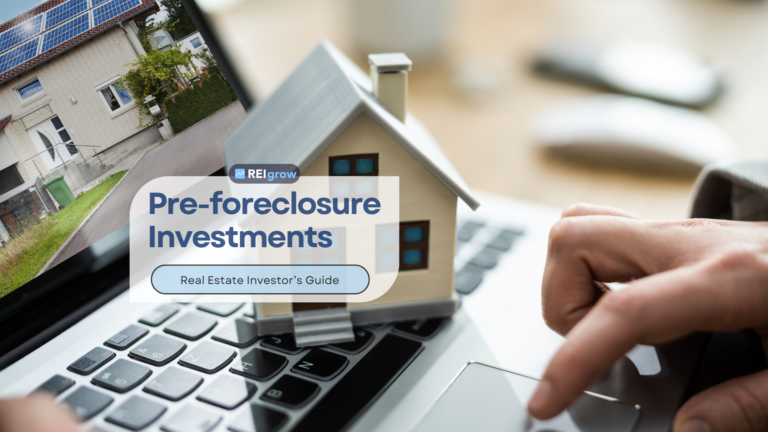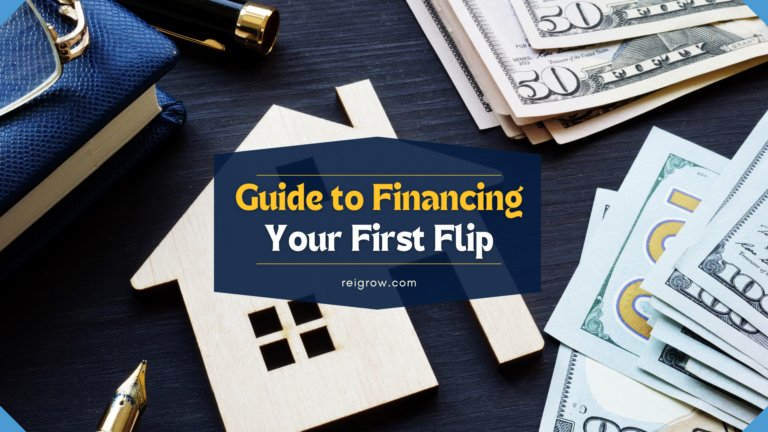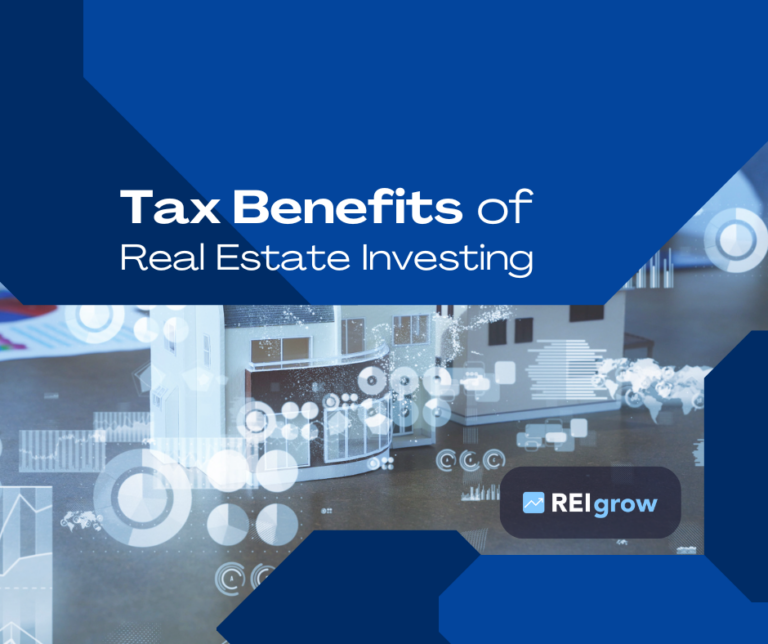How to Become a Real Estate Investor
Success in real estate investing demands knowledge and foresight in property investments, marketing, networking, negotiations, and finance. Real estate investors, from their very first purchase, must be adaptable and comfortable taking calculated risks.
Do you aspire to become a successful real estate investor?
You need to cultivate a winning mindset to understand how to capitalize on promising property investments in your market.
From finding real estate investing leads to nurturing them, negotiating an offer, securing finance, and acquiring a property or wholesale contract to the exit strategy, investors learn to plan for everything ahead of time.
While success in real estate investing doesn’t happen overnight, starting now means you can gain insight into what it entails and seek out more specific real estate investing advice for your situation.
Here’s a beginner’s guide to becoming a real estate investor:
Research Real Estate Investing Strategies
First things first, you need to have a clear idea of the different ways you can actually invest in real
Buy-and-hold: This strategy is all about buying properties you can hold onto for the long haul. With buy-and-hold REI strategy, you’ll benefit from the property’s value increasing over time (appreciation) and a steady stream of income from rent.
House flipping: This strategy involves buying undervalued properties, renovating them, and selling at a profit. It demands a sharp eye for bargains and knowledge of renovation costs.
Rentals: You can also consider rental approaches like traditional long-term rentals or short-term vacation rentals, each with unique pros and cons.
Wholesaling: Real estate wholesaling involves securing contracts from distressed property sellers and selling them for a profit.
REITs: Real estate investment trusts (REITs) offer a way to invest in real estate without owning physical properties. This real estate investment option helps increase diversification and improve liquidity.
We have discussed real estate investment strategies in more detail in a previous blog post.
Regardless of the investing strategies you can start with in the beginning, be sure to diversify your investment mix over time with different strategies to spread out your risk, improve cash flow, and increase profits.
Research Locations
The success of your investment hinges heavily on where you choose to invest. The area where a property is situated can significantly impact its value and income potential.
So, investors need to research neighborhood trends, amenities, schools, transportation, and job opportunities to make informed decisions.
Market research is a must to grasp supply and demand dynamics.
Factors like vacancy rates, rental returns, and property appreciation trends help assess property investment opportunities accurately.
You should also look into local regulations and zoning laws to anticipate future changes that could affect your investment positively or negatively.
In short, thorough location research is important for successful real estate investments.
Investment Property Research Checklist for Real Estate Investors
- Neighborhood Stability: Check out the neighborhood’s economic health, safety levels, and potential for growth to make sure your investment will be secure in the long run.
- School District Quality: Properties near top-rated schools tend to attract families; this can boost rental demand and property value.
- Amenities and Infrastructure: Properties close to parks, shopping centers, public transport, and major roads can be more appealing to renters.
- Market Trends: Keep an eye on trends like rising property values and increasing rental demand to seize opportunities as they arise.
- Future Development Plans: Look into any upcoming projects or changes in the area, as they could affect property values and rental potential down the line.
Create a Professional Plan for Your REI Business
Crafting a solid real estate investment strategy requires a well-thought-out plan.
No amount of real estate investing advice will help if your professional roadmap does not detail your goals, financial resources, risk tolerance, and timeline.
Here are five elements to consider when developing your real estate investment business plan:
- Clear Goals: Define what you aim to achieve in real estate investing, whether it’s generating passive income or flipping properties for profit. . Do you seek long-term growth, rental income, or a mix? Clear objectives keep you on track and motivated.
- Target Market Research: Research the real estate investing market in your target area thoroughly. Check out the latest trends in property prices and rental demand.
- Financial Planning: How much can you invest? Factors like credit score and access to financing matter. You need to create a detailed financial plan outlining your budget, funding sources, and expected returns. A strong financial strategy is crucial for long-term success in real estate investing.
- Risk Management: Identify potential risks in real estate investing and plan ways to minimize them. Real estate investing does involve some risks. So, be aware of your risk tolerance to pick the right properties and investment strategies.
- Networking: Build a network of real estate investors, professionals, mentors, and potential partners. Networking opens doors to new opportunities, insights, and supports your growth as an investor.
Start Using a Dedicated CRM for Real Estate Investors
You need a dedicated CRM for real estate investors to streamline your work and improve interactions with distressed property sellers and other investors.
A quality REI CRM system can significantly improve your efficiency.
It helps you find and manage leads, automate marketing campaigns (text, email, direct mail, or voice), and condense everything from lead generation and nurturing to meetings and alerts into a single, accessible dashboard.
This dashboard can be accessed from anywhere, anytime, and on any device.
REI Grow stands out as one of the best CRMs for real estate investing; it allows you to personalize fields and workflows to match your specific investment criteria and strategies.
You can easily track and analyze data in a manner that aligns with your investing style.
You can practically automate any type of text, email, or direct mail campaigns with built-in templates for targeted real estate investment marketing and even have an AI assistant converse with leads and schedule appointments for you.
Automation in lead management, marketing, and appointment booking not only saves time but also reduces errors and helps you stay organized in your real estate investing endeavors
Secure financing for investment properties
There are different ways to get funding for a real estate investment plan.
- Traditional Mortgages: You can get a loan from a bank or lender to finance your first flip, real estate wholesale deal, or buy-and-hold investment. This needs a down payment, good credit, and proof of income.
- Hard Money Loans: These are short-term, high-interest loans based on property value. They’re quick to get but have higher rates.
- Real Estate Crowdfunding: Multiple investors combine funds to invest. It’s flexible for amounts and property types.
- Seller Financing: The property seller acts as the lender. It can offer better terms than traditional loans.
Each option has benefits and drawbacks, so choose wisely based on your strategy and risk tolerance.
Find and Nurture Distressed Property Seller Leads
Uncovering distressed property seller leads can open doors to profitable investment opportunities. There are different ways to find vacant or abandoned properties, foreclosure investments, and other leads.
For instance, if you are driving for dollars, signs like neglected lawns, boarded-up windows, or multiple property liens often point to motivated sellers willing to negotiate below market prices.
You can also check out foreclosure listings, online auctions, and social media to discover distressed properties and connect with motivated sellers.
Many investors connect with real estate agents, property managers, contracators, and local investors to uncover potential distressed property leads that may not be publicly available.
Savvy real estate investors prefer using a CRM like REI Grow to find and nurture different types of leads. Once you spot potential leads, nurturing these relationships is crucial.
During your interactions, its important that you show empathy towards sellers facing tough situations to build trust. Also, you need to continue nurturing seller leads for weeks, months, and sometimes, even for a year to maximize your deal closure rate.
REI Grow makes it easy with automated workflows and built-in templates for nurturing a few hundred or thousands of leads to uncover hidden opportunities.
Make your first purchase
When you make your first real estate investment, you’re taking a big step towards growing your finances. It can feel both thrilling and daunting as you enter the world of real estate investing.
Learn about the common mistakes new real estate wholesalers and house-flippers tend make early on to steer clear of obvious pitfalls.
Here’s what to consider:
- Do Your Research: Look into market trends, property values, and areas with potential growth to make a smart choice.
- Set Clear Goals: Decide what you want from your investment, whether it’s rental income, property value increase, or a mix of both.
- Stick to Your Budget: Know your financial limits and avoid going overboard to stay financially secure.
- Get Expert Advice: Talk to experienced investors, real estate agents, financial advisors, and attorneys for valuable insights.
- Trust Your Instincts: While data is crucial, listen to your gut. If something feels off, it’s okay to walk away.
Flip or Find a Tenant
Decide whether to fix up and sell an investment property for profit or find a tenant for steady rental income.
Flipping can bring quick profits but needs upfront money for renovations and involves market risks. On the other hand, renting ensures a steady cash flow and provides greater financial stability.
If you go for flipping, study market trends carefully and follow a good house flipping checklist to ensure you complete all necessary steps. Seek areas with rising property values or neighborhoods on the upswing. Calculate renovation costs accurately to stay within budget.
If renting out, research rental rates and demand in the area. Consider the duties of a landlord, like upkeep and tenant relations.
Your decision to flip or rent hinges on your financial aims, risk tolerance, and time availability. Both strategies have pros and cons, so weigh them thoughtfully. Keep up with the market and stay informed to make the best choice for your situation.
Estimating Your Earnings
- Look at recently sold properties similar to yours to get an idea of what your property is worth.
- Figure out how much you can charge for rent based on what others are paying to see how it affects your cash flow.
- Remember all costs like maintenance, property management, taxes, and insurance to get a clear picture of your profits.
- Expect some empty periods and plan for them in your finances to avoid unexpected losses.
- While not guaranteed, think about how your property’s value might increase over time to boost your earnings.







